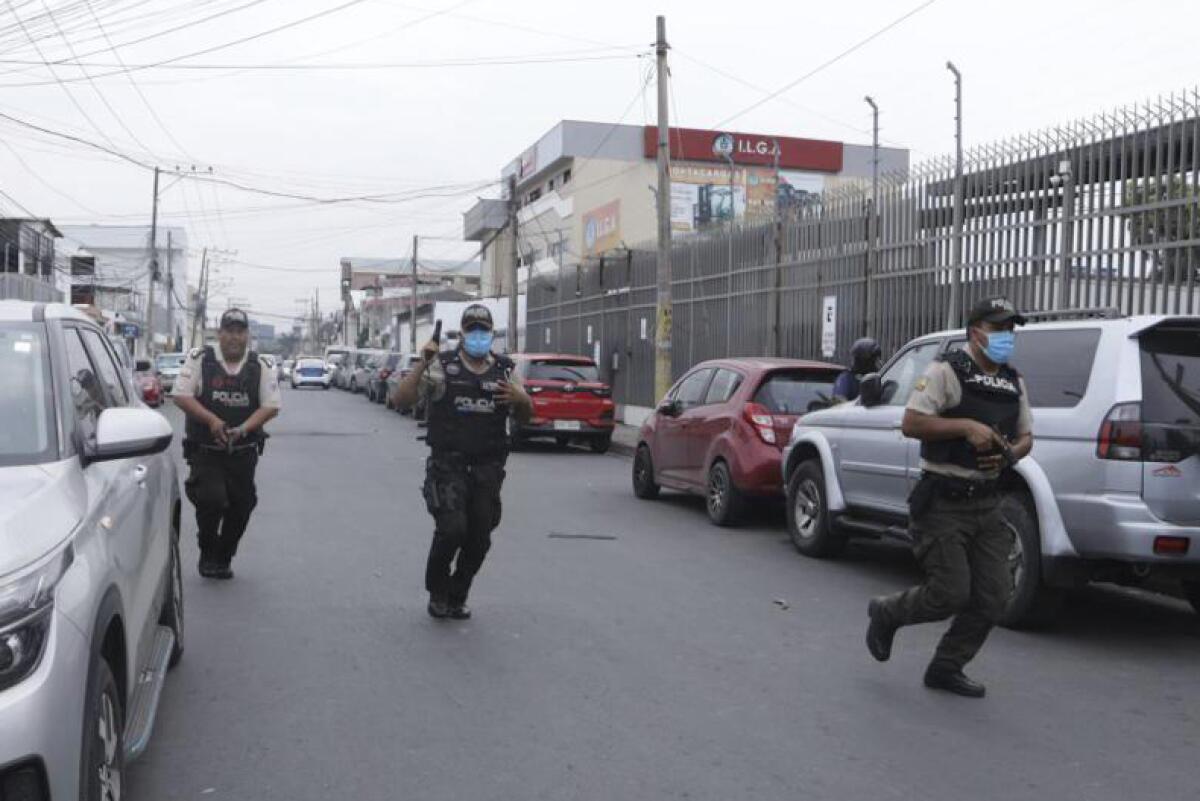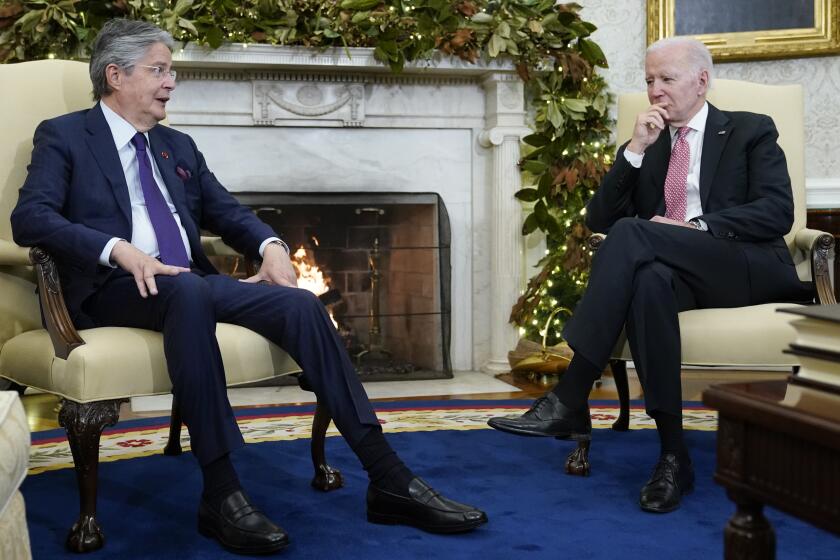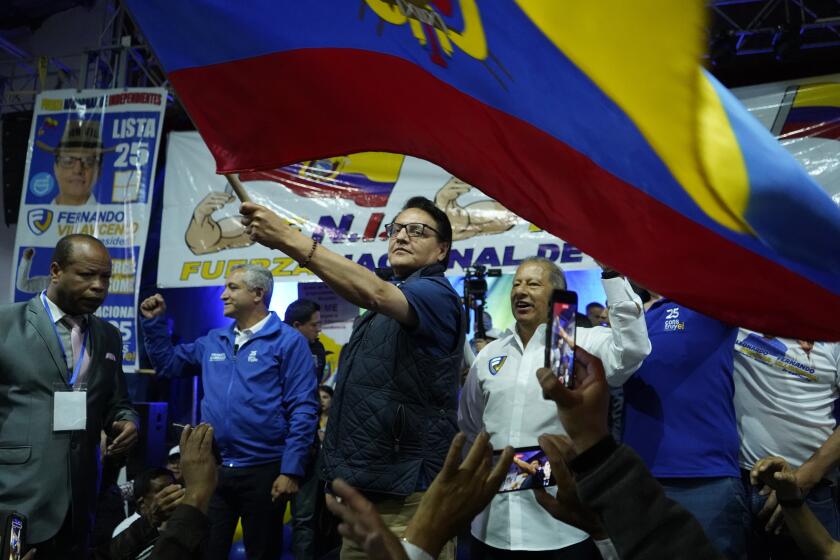Armed men storm TV studio during a live broadcast in Ecuador

QUITO, Ecuador — Masked men broke onto the set of a public television channel Tuesday in Ecuador, waving guns and explosives during a live broadcast. The president issued a decree declaring that the country had entered an “internal armed conflict.”
The men, armed with pistols and what looked like sticks of dynamite, entered the set of the TC Television network in the port city of Guayaquil and shouted that they had bombs. Sounds similar to gunshots could be heard in the background. It was not immediately clear if any station personnel were injured.
Ecuador has been rocked by a series of attacks, including the abductions of police officers, in the wake of a powerful gang leader’s apparent escape from prison Sunday. President Daniel Noboa said Monday that he would declare a national state of emergency, a measure that lets authorities suspend people’s rights and mobilize the military in prisons and other locations.
Shortly after the gunmen stormed the TV station, Noboa issued another decree designating 20 drug trafficking gangs operating in the country as terrorist groups and authorizing Ecuador’s military to “neutralize” these groups within the bounds of international humanitarian law.
Soon after, Ecuador’s national police chief announced that authorities had arrested all the masked intruders. Police Cmdr. César Zapata told the TV channel Teleamazonas that officers seized the guns and explosives the men had with them. He didn’t say how many people were arrested.
Biden administration efforts to find a partner in Latin America ignore Ecuador’s severe problems, congressional critics say.
“This is an act that should be considered as a terrorist act,” Zapata said.
The government has not said how many attacks have taken place since it was discovered that Los Choneros gang leader Adolfo Macías, alias “Fito,” was missing from his cell in a low-security prison on Sunday. He was scheduled to be transferred to a maximum-security facility that day.
Authorities also have not said who is thought to be behind the attacks, which included an explosion near the house of the president of the National Justice Court and the Monday-night kidnappings of four police officers, or whether they think the actions were coordinated.
Police said one officer was abducted in the capital, Quito, and three in Quevedo.
The government has blamed members of the main drug gangs for similar strikes. In recent years, Ecuador has been engulfed by violence tied to drug trafficking, including homicides and kidnappings.
Macías’ whereabouts are unknown. Prosecutors opened an investigation and charged two guards in connection with his alleged escape, but neither the police, the corrections system nor the federal government confirmed whether the prisoner fled the facility or might be hiding in it.
In February 2013, he escaped from a maximum-security facility and was recaptured weeks later.
Fernando Villavicencio was killed by a gunman at a political rally in Quito, the capital of Ecuador, where drug trafficking and violence have surged.
On Monday, Noboa decreed a national state of emergency for 60 days, allowing authorities to suspend rights and mobilize the military in prisons. The government also imposed a curfew from 11 p.m. to 5 a.m.
Noboa had said on Instagram that his government aimed to confront the wave of crime and wouldn’t stop until he “brings back peace to all Ecuadorians.” The wave of attacks began a few hours later.
States of emergency were widely used by Noboa’s predecessor, Guillermo Lasso, as a way to confront the violence in the country.
Macías, who was convicted of drug trafficking, murder and organized crime, was serving a 34-year sentence in La Regional prison in Guayaquil.
Los Choneros is one of the Ecuadorian gangs authorities consider responsible for the spike in violence, which reached a new level last year with the assassination of presidential candidate Fernando Villavicencio. The gang has links with Mexico’s Sinaloa cartel, according to authorities.
Experts and authorities have acknowledged that gang members practically rule from inside the prisons. Macías was believed to have continued controlling his group from within the detention facility.
More to Read
Sign up for Essential California
The most important California stories and recommendations in your inbox every morning.
You may occasionally receive promotional content from the Los Angeles Times.










